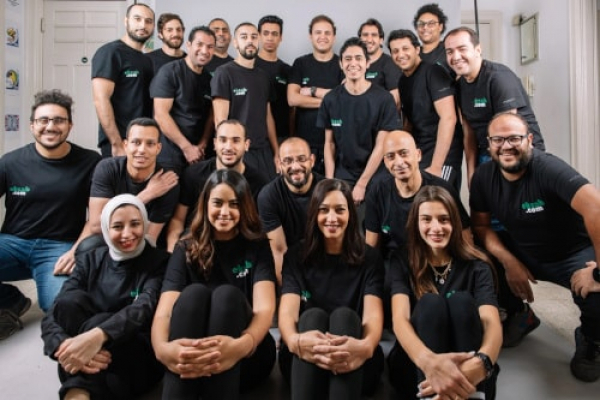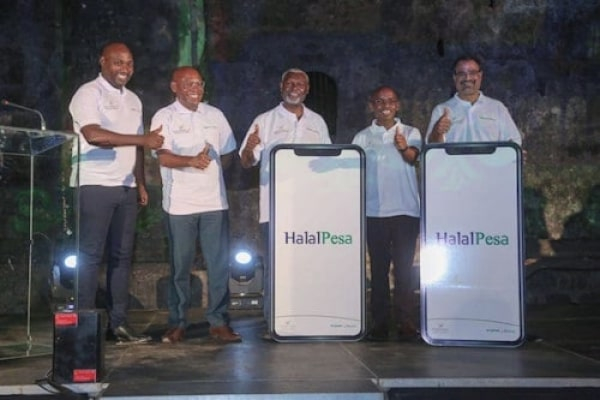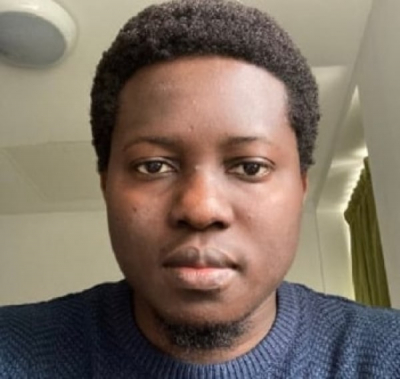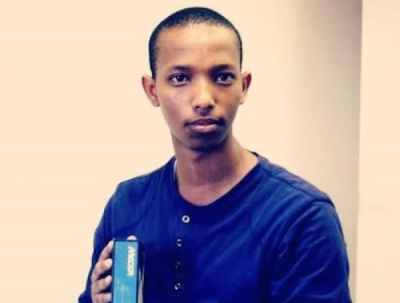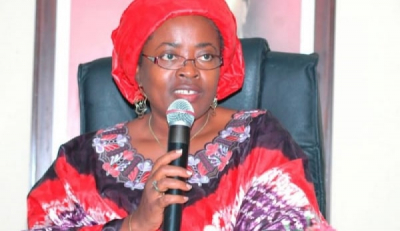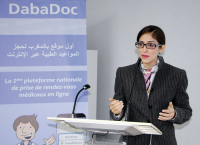Egyptian fantasy soccer platform Eskab announced last Monday the successful completion of a US$3 million funding round. Led by 4DX Ventures, the funding round saw the participation of several financial institutions and angel investors. Thanks to the funds secured, Eskab wants to make soccer more exciting and interactive for the Middle East and North Africa (MENA) fans by developing new products. In that regard, it intends to recruit engineering talents and product teams as well as partner with soccer clubs.
Fantasy soccer is a simulation game where users predict the outcome of soccer matches between virtual teams they create using virtual representations of real-life players. With their virtual teams, users can take part in free or premium competitions and win prizes.
“During my time [in Canada], I got exposed to the rise of DraftKings and FanDuel. My friends were playing these two games and while I didn’t know much about Canadian sports, specifically hockey, I found that playing these games was the easiest way for me to kind of get to know the sports and kind of develop that sense of camaraderie with my friends. (...)I enjoyed the games and realized, ‘Why is no one doing this for the hundreds of millions of football fans in the Middle East and Africa?’ So we did some research and realized there was a massive market gap for this kind of game [fantasy football] in the Middle East and Africa, ” explains Aly Mahmoud, Eskab founder.
Launched in 2018, the platform claims more than 700,000 users in Egypt. Its userbase has been growing steadily since the launch of premium contests in 2021. The platform plans to enter other sports but, with the coming soccer World Cup, Eskab to first explore the soccer world before venturing into other virtual sports.
Adoni Conrad Quenum
Kenyan telecom operator Safaricom and Islamic bank Gulf African Bank recently launched a Sharia-compliant mobile loan called Halal Pesa.
Thanks to the solution, users can receive up to Ksh20,000 loans fully repayable within 30 days with a 5% “commodity Murabaha margin.”
For Safaricom, Halal Pesa is “the first Sharia-compliant mobile and digital financial solution” in Kenya.
“Kenya is now a highly innovative, interconnected, and fast-paced community that requires solutions on the go. All our digital offerings, including Halal Pesa, seek to directly address this aspect. Our current strategy is focused on digitization for financial inclusion,” said Abdalla Abdulkhalik, Managing director of Gulf African Bank.
Waste management is currently one of the most important global issues. In 2019, the International Labour Organization revealed that 2.01 billion tons of solid waste were produced in the world annually. Just 16% of the global solid waste is recycled. To address the waste management problem, a Nigerian entrepreneur is betting on technology.
In November 2021, Nigerian entrepreneur Damilola Kadiri (photo) launched Wura, an item-sharing app whose sole purpose is to save the planet. Through Wura, users can share things they no longer need, be they used clothes, books, shoes, jewelry, or even earpieces. So far as they can be useful, they are welcome on Wura.
To post or recover items on Wura, users have to register on the app and abide by its golden rules. The said golden rules were drafted by Damilola Kadiri to avoid bad situations when exchanging items through his platform. All items are free and users are asked to report anyone selling items through Wura. Also, users are cautioned to receive items only from people with profile pictures. The rules also request users to appreciate givers, request items with compassionate words and meetup in public, and follow Covid-19 prevention rules.
With 354 registered users and 47 donations so far, Wura plans to positively impact Nigerians by showing them how everyday actions affect the environment. “For now, we are looking at increasing the number of transactions on the app and sign-ups, then over time, what we intend to do is promote sustainability businesses. So I feel that would be an avenue for us to generate profit. As I said, the idea is to change people’s behavior to be eco-friendly,” says Damilola Kadiri adding that he has no plans to commercialize the app for the time being.
The app is available on android and iOS. Thanks to “an advanced analytical algorithm,” users are made aware of the environmental contribution of the transaction they make. By including such a feature, Wura developers expect users to change their attitude towards the environment once they start noticing the amount of carbon dioxide emissions they help reduce by not throwing away bulk items.
Adoni Conrad Quenum
Logidoo is a Senegalese e-logistics platform that lets its users send packages across Africa. Last year, it recorded a 200% turnover growth year-on-year.
The platform was created in 2019 by Tamsir Ousmane Traoré (photo) who wanted to develop logistics solutions that match African realities. The path seems natural for Traoré who comes from a family of entrepreneurs active in the logistics sector.
After taking marketing and management courses in Morocco and a brilliant career in the African supply chain, the Senegalese returned to his motherland in 2011. That is when his entrepreneurial career began. Indeed, before Logidoo, which he launched in 2019, Ousmane Traoré had Tex Courrier, a mailing business, Indilma, an event management business, and Pharma Express, a pharmaceutical distribution company.
With Logidoo, 2WLogistics, the startup founded by Tamsir Ousmane Traoré, manages the reception, storage, shipment, and all the import-export procedures. As for users, through Logidoo, they can compare different shipping options (road transport, air transport, or sea transport) and track their packages.
In 2020, Logidoo entered the Moroccan markets. While this move started Traoré’s expansion in the MENA region, he also wanted to make the Senegal-Morocco axis a route for West African clients seeking reliable logistics solutions.
In just two years, the solution has conquered six markets (Senegal, Mali, Guinea, Morocco, and Mauritania). Ultimately, his ambition is to progressively integrate technology into import-export operations in Africa, as well leverage the opportunities offered by the African Continental Free Trade Area (AfCFTA) to conquer the African logistics market.
Aïsha Moyouzame
Botswana currently has more cattle than residents. Over 100,000 ranches are registered in the country. However, owners who still use traditional management methods are finding it hard to oversee daily activities.
Motswana Thuto Paul Gaotingwe (photo) developed an offline app to allow livestock farmers to improve the management of their cattle and ranches. Initially, his goal was to help a friend, but he quickly realized that Botswana's livestock farmers have limited control over the farming process.
"We have worked around innovative ways that still allow them to improve production and efficiency with less change from their old ways," he says.
The farm management app is dubbed Modisar, which means ‘livestock caretaker’ in Tswana, one of the oldest Bantu dialects. It allows efficient farm data collection, enabling farmers to act accordingly when things seem to be going wrong.
With Modisar, livestock caretakers and farmers keep livestock, farm, financial, and production records. The app has a built-in "smart farm assistant" feature, which reminds farmers of important tasks and best practices for profitable farming. It also has an "animal management" feature, which keeps track of almost everything concerning the livestock on farms and produces a wide range of operating reports.
By synchronizing farm data collected, the app recommends solutions to optimize profits. It also integrates a feature that tracks farm assets and inventories while reminding of important actions to take. For instance, it can send text messages to caretakers or farm owners reminding them to vaccinate their livestock or proceed to insemination.
In 2014, the app won the Orange Social Venture Prize, known by its French acronym POESAM. In 2015, Paul Gaotingwe’s startup, Modisar also, decided to make the app free for farmers, attracting 1,200 farmers at the time.
Adoni Conrad Quenum
The International Finance Corporation (IFC) and the World Bank organized on March 30, a workshop on the development of the digital industry in Cameroon. During the workshop, the various stakeholders and the government discussed issues facing the development of the industry in the country.
According to Minister of Posts and Telecommunications, Minette Libom Li Likeng (photo), it was the opportunity to present the current state of the industry, its challenges, and opportunities, the support programs implemented, and ways to accelerate the development of that industry in Cameroon.
"Digital transformation is at the core of Cameroon’s development strategy. This is why we have decided to support the development of that industry, therefore helping Cameroon operate that transformation as quickly as possible,” said Sylvain Kakou, IFC regional representative in Central Africa.
For the regional representative, the workshop is then a brainstorming session to make sure the policies formulated are coherent and consistent and their execution will have maximum impact.
The attending parties are expected to elaborate a digital development action plan by the end of the workshop. The World Bank, which has invested in various stakeholders like entrepreneurs and fintech actors, also awaits a well-formulated national strategy that defines the specific roles of every stakeholder. Minister Minette Libom Li Likeng for her part assured that Cameroon will implement the recommendations made during the workshop.
In 2020, Cameroon adopted a strategic plan for the development of its digital economy. On September 28, 2021, the World Bank approved funds to finance a project to accelerate the country’s digital transformation.
The US$100 million project aims, among other things, to extend broadband internet coverage in rural areas, and promote an environment conducive to secure and resilient development. It also aims to foster the implementation of data-driven solutions in the agricultural sector, encourage innovation in the said sector, and boost the use of digital solutions by small-scale farmers.
Ruben Tchounyabe
Female genital mutilations (FGMs) are prohibited in most African countries. Regardless, they are still carried out in some regions. In Nigeria for instance, it is still widespread, according to a release issued last February by UNICEF.
To combat such practices, in Nigeria, social entrepreneur Dirug Samuel (Photo) developed SmartRR, a mobile app allowing people to report female genital mutilation and rape cases.
Dirug Samuel is a computer science graduate from Adamawa State Polytechnic, Nigeria. He also holds a human resources certification from the Stallion Academy for Business and Leadership. As the founder and executive director of the Big Family 360 foundation, he has been actively opposing gender-based violence since 2017. The social entrepreneur is renowned for his commitment to the fight against female genital mutilation and the support he helps provide victims of such acts.
His app SmartRR facilitates anonymous reporting of FGMs, using “the UNFPA service mapping program.” For Dirug Samuel, female genital mutilations violate human rights. So, he is set on contributing his computer skills to fight the phenomenon.
Samuel also wants to sensitize communities against the phenomenon. “With awareness and innovations about the dangers of the practice of FGM, about 40 percent to 50 percent of women say they would not want their daughters to experience it [ed.note: FGMs] (...)The UNFPA and other stakeholders are achieving a lot in the fight against FGM in Nigeria,” he said in an interview in 2021.
In September 2021, the Big Family 360 Foundation’s CEO won the UNFPA Female Genital Mutilation (FGM) Hacklab and the Spotlight Initiative (SIARP) award.
Aïsha Moyouzame
French telecom group Orange announced, on Wednesday, the launch of a new telemedicine service. Dubbed DabaDoc Consult, it is the outcome of a partnership between the French telecom group and DabaDoc, the Moroccan start-up specializing in medical appointment management.
Launched in Morocco in March 2020 when the coronavirus pandemic was raging, DabaDoc virtual medical consultation booking will expand into all of the Orange African markets with DabaDoc Consult.
With DabaDoc Consult, the African diaspora can book medical consultations for their loved ones residing in their home countries. For that purpose, a "simple and fluid process was developed jointly by the DabaDoc and Orange Link teams," Orange group explains.
"The customer, from the diaspora, wishing to offer a DabaDoc Consult must connect to the Orange ‘Country Transfer’ platform, choose the type of consultation and pay with his/her bank card. The beneficiary will instantly receive a code to pay for the virtual consultation," it adds.
DabaDoc was created by Zineb Drissi Kaitouni (photo) and Driss Drissi Kaitouni. The mobile platform launched in 2014 has already facilitated access to health specialists for thousands of people in Morocco, Tunisia, and Algeria.
To book an appointment with a health specialist through DabaDoc, the requester must first register on the platform, then select the type of medical service being requested, fill in the city, select the health specialist close to the selected area, and choose a time slot. Once the appointment is validated, a confirmation message indicating the date and time of the appointment is sent by email and SMS to the requester.
In May 2015, the platform became fee-based for health professionals who would like to offer their services. According to Zineb Drissi Kaitouni, the subscription fees are "450 dirhams [122.5 USD] for one month, 300 dirhams/month for a 3-month subscription, and 225 dirhams/month for one year" subscription.
In April 2021, Orange Africa and the Middle East acquired a stake in the start-up through a fundraising operation. The telecom company immediately contributed its technological expertise and payment solutions to develop digital solutions that quickly proved beneficial for the entire African healthcare ecosystem.
DabaDoc, available in French and Arabic, has already received numerous awards such as the third prize for the best start-up in Morocco at Seedstars World in May 2014. It also won the top prize for GIS, a competition organized by the US Department of State in October 2014.
In 2016, its co-founder Zineb Drissi Kaitouni was named one of the top three female entrepreneurs in Africa.
Adoni Conrad Quenum
Sattelite internet access has become a popular alternative for operators that want to provide internet in remote communities. However, it has limitations that AST SpaceMobile tries to overcome.
Orange, the French telecom group, is moving to test space-based cellular broadband internet in one of its African markets. The group signed a non-binding memorandum of understanding with AST SpaceMobile on March 25 in this framework.
Under the terms of the agreement, AST SpaceMobile will deploy its services through the BlueWalker 3 satellite with no additional ground. It will thus allow internet access to Orange users in the targeted market, through standard 3GPP frequency bands.
For Chris Ivory (photo), AST SpaceMobile chief commercial officer, with its space-based cellular broadband internet solution, "AST SpaceMobile seeks not only to fill cellular broadband coverage gaps for millions of existing subscribers but also to extend mobile service to areas which currently have little to none at all."
Like most telecom operators, Orange is currently taking new initiatives to meet the growing demand for quality telecom services in Africa. Satellite is one of the options it looks into. It has its limitations, however. For instance, sometimes, ground equipment transmitting satellite signals fails to effectively cover remote areas.
Thanks to AST SpaceMobile's space technology, Orange will be able to bring the signal everywhere it is needed. Its users will be able to directly receive satellite signals. The memorandum of understanding signed by the two parties paves the way for discussions on a potential agreement for Orange to use the BlueBird satellite network being built by AST SpaceMobile.
Adoni Conrad Quenum
Kintambo, a northwestern municipality in Kinshasa, DRC, will test a digital population registry system in cooperation with the Brussels-Capital Region. In the framework of that test, the municipality will carry out a digital identification program to register the population residing in the region.
The test project is funded by the Brussels Development Cooperation, managed by Brussels International. It is part of the cooperation agreement signed on Monday 21 March in Kinshasa by the Minister-President of the Brussels-Capital Region, Rudi Vervoot (photo, left), and the Governor of the city of Kinshasa, Gentiny Ngobila Mbaka (photo, right).
According to Corinne François, director of the Association of the City and Municipalities of the Brussels-Capital Region (Brulocalis), a digital register containing an official record of the population "is important for democracy.”
The digital registry is "the foundation of everything. For instance, during elections, there could be fraudulent acts like counting the votes of dead people if there is no digital register. It is also an important tool to identify where to build a school, a hospital, etc…,” she added.
Belgian municipalities have been assisting Kinshasa in the improvement of its civil registration system since 2008. Thanks to the federal program "International Communal Cooperation" being coordinated since 2017, by the Association of the City and Municipalities of the Brussels-Capital Region and the Union of Cities and Municipalities of Wallonia (UVCW), six Brussels municipalities (Brussels-City, Ixelles, Uccle, Watermael-Boitsfort, Woluwe-St-Lambert, Saint-Gilles) and seven Walloon municipalities (Court-St-Etienne, Flémalle, Herve, Namur, Olne, Waremme, and Seraing) have already partnered with a municipality in Kinshasa.
If the test planned in Kitambo proves successful, the digital population register could be extended to other municipalities and even to provinces. With a secure database of its population, the Congolese government will have valuable assets to devise effective socio-economic development strategies.
Muriel Edjo
More...
In just one year, Ahmed Ismail and his partners managed to make Bloom, a fintech offering savings services, the first Sudanese startup to join a cohort of US startup enabler Y Combinator.
Former Barclays investment bank partner Ahmed Ismail (pictured) is the CEO of Bloom, a digital financial solution developed by Bloom Financial Technologies (UK) Limited through its Sudan-registered branch. He co-founded Bloom with Youcef Oudjidane, Abdigani Diriye and Khalid Keenan, African entrepreneurs who studied at renowned universities in the UK and worked at Goldman, Amazon and IBM. They decided to combine their experience in engineering, investment banking and venture capital to fight inflation and currency devaluation in Sudan.
They initially intended to invest in already established digital banking markets in Africa, but ultimately chose to build one instead. They entered the Sudanese market because they were familiar with it and wanted to make an impact in a still to be developed tech ecosystem. In 2021, they launched Bloom, a neobank that allows Sudanese to save in U.S. dollars and spend in their local currency, the Sudanese pound. Their neobank offers several other services like money transfer and dollar banking cards.
Their goal is to help users -the middle class mostly- save in stable currencies and spend in the local currency amid inflationary pressures, which exceeded 350% in the country in 2021.
Sudan's tech ecosystem is still in its infancy, Bloom is the second venture-backed startup in the country in over 30 years, and the first backed by U.S. startup enabler Y Combinator in the country. The neobank, which is thus representing Sudan’s tech ecosystem on the global scene, claims to have 15,000 people on its waitlist.
For the founders, being included in the Y Combinator 2022 startup program could help not only draw attention to Bloom but also to opportunities in other countries, like Sudan, that are not much present in international competitions.
Aïsha Moyouzame
In Mid-March 2022, the Cameroonian government offered free broadband equipment and subscriptions to startups active in Silicon Mountain, Buea, South West. In this interview, Churchill Mambe, founder of AfroVision looks explains the impact those gifts can have on digital transformation and the operations of Silicon Mountain’s innovative ecosystem. He also discusses the importance of the internet for tech entrepreneurs.
We Are Tech: Can you tell us a little about Silicon Mountain?
Churchill Mambe: Silicon Mountain is a tech industrial zone based in Buea and Fako. It's not an association, it's just a zone where young tech entrepreneurs who have created their startups -like me with AfroVision Njorku and Buyam- are concentrated. Those startups include Zinger System, ActivSapces incubator, Jongo Hub, sienfliex [for media, series, movies], Mountain hub, Mountain credit union, Genie computer...
All those startups are part of Silicon Mountain. We don’t currently have an exhaustive list of all the start-ups in that startup ecosystem. It includes anyone earning money through smartphones, in the cities of Buea, Muyuka, Ekona, Tiko, Mutengene, Limbe. In short, all the startups in the department of Fako and the regions surrounding Mount Cameroon are part of Silicon Mountain. However, just some 50 startups active in Silicon Mountain are well-known. Even the Wikipedia list is not complete because not all the startups are listed.
WAT: Please tell us about AfroVision Group, your startup
C.M: AfroVision Limited Group is the first company I launched in 2006. It specializes in consulting, the development of web/mobile solutions for businesses, software engineering, website development, development of mobile applications such as Buyam that we just launched. We also develop IT systems for government institutions, such as the GCE Board. We are currently a team of 10 people. This year, we plan to increase the staff size to 40 people by adding new members, engineers mostly, because we intend to grow with the new partners and investors we have in the U.S.
We are currently working on our project "Buyam," an online marketplace with stores in the cloud. Through that marketplace, customers can directly contact merchants, via their mobile phones, to buy what they need.
WAT: On March 15, the Cameroonian government offered one year of free broadband internet subscription to 35 startups, including yours, active in Silicon Mountain. What does this gesture mean to you?
C.M: It's a sign that the government is ready to support us and help us make Silicon Mountain more viable and create more jobs for young Cameroonians. Some startups chose fiber internet connection. It is very fast but, it will take four weeks to install it. The 15 startups that chose cellular modems received their equipment the same day with a 135-gigabyte subscription per month.
We at Afrovision Group chose the fiber internet connection because it is more stable and we need a fast and secure Internet to communicate with our customers in Africa, Europe, and the United States. We are still waiting for the installation of the cables. This can take up to a month.
WAT: What prompted the Cameroonian government to offer those amenities to you?
C.M: A year ago, the Minister of Posts and Telecommunications (Minpostel) sent a delegation to Buea. During a meeting with this delegation, its members asked us what challenges we were facing in our work. We replied that those challenges were the unavailability of quality internet connection and repeated power outages. Without the Internet we cannot work with our clients, we cannot manage our web platforms and applications. Without the internet, our work is jeopardized.
As far as electricity is concerned, we received a generator from the French embassy in Cameroon and French businessmen operating in our country. The generator is installed on the premises of ActivSpaces incubator in Buea. During that meeting, the Minpostel delegation offered to support us by providing an internet connection.
WAT: What criteria were considered for the selection of beneficiary start-ups?
C.M: The Minpostel asked us to make a list of the startups that need an internet connection. We created a google form and shared it with all the startups and tech firms active in Silicon Mountain so that they could register. To register, startups were to be based in Buea or anywhere in Silicon Mountain, specialized in mobile/web development, be a legal person, and pay taxes
WAT: What is the impact of that extra Internet connection on your business?
C.M: I usually spend XAF40,000 monthly to buy a 100-gigabyte internet subscription for the office and my home. It is an ADSL connection whose speed is between 1 to 3 megabytes per second. With the broadband internet connection we are being offered, speed will improve to 6-10 megabytes per second. It will greatly improve our working conditions. It will allow the young engineers I am working with to study online and attend meetings with our partners in South Africa and other parts of the World without much disruption. The rapid speed of the internet connection will make it easier and quicker for us to deploy our solutions in the cloud. With the new Buyam solution we are working on, at one point we had to move to a high capacity server. This took us about 3 weeks to complete the transfer. With a fiber internet connection, it would have taken just three hours. When you save time, you make more money.
WAT: Between January and April 2017, the government shut down the internet in the North-West and the South-West. That decision surely affected Silicon Mountain since it is located in the Southwest. What were the consequences of that government decision on startups in Silicon Mountain?
C.M: It was the most harmful experience ever faced by startups here in Buea. I can estimate that our company lost between 70,000 and 100,000 US dollars. When we were cut off, we first moved to Douala. Then, we rented a place at New Bonako, between Douala and Buea, where we could have internet access. I don't want to talk about it. It is a thing of the past. We are past it.
WAT: Can the internet connection and equipment the government recently provided compensate for the losses you suffered at that time?
C.M: We can't compare the two periods because the realities were different. The internet shutdown happened in 2017. We are now in 2022. We needed an internet connection and the government is offering it. We are happy and we will use it to improve our business, upgrade and hire more people. With the internet connection offered, we will be able to train more young people, work with more clients and develop more solutions
Interview by Ruben Tchounyabe
Novissi, the social assistance program developed by NGO GiveDirectly, was implemented by the Togolese government to support poor communities during the coronavirus pandemic. US$22.5 million was distributed to 817,154 people in its framework.
Cash transfer program Novissi received the Special Recognition Award of the South by Southwest (SXSW) Innovation Show, held March 11-20 in Austin, Texas, USA. The program, termed MobileAid, set itself apart during the Covid-19 crisis. Indeed, in 2020, when the coronavirus was raging, Togo implemented Novissi to assist the less privileged.
Four conditions were required to access government assistance. First, the applicant must be a Togolese residing in the country. Secondly, he/she must be an employee whose job was affected by the coronavirus response measures issued by the government. The third and the fourth conditions were respectively being aged over 18 and having a voters card.
Applicants meeting all those four conditions can self-enroll by dialing the USSD code *855# and following the enrollment procedure.
Male beneficiaries used to receive monthly stipends of XOF10,500 (US$17.76), against XOF 12,250 for women. Beneficiaries were advised to use the stipends to buy food and water, pay for water and electricity bills, or purchase airtime.
Developed by the non-governmental organization GiveDirectly, Novissi was born out of the Togolese government's desire to guarantee a minimum income for the poor amid the coronavirus pandemic that forced travel restrictions.
Overall, 1,631,101 people self-enrolled on Novissi but only 817,154 were approved. They included 516,847 women and 300,307 men. According to the Togolese government, The beneficiaries received a total of XOF13.308 billion.
Adoni Conrad Quenum
Over the past five years, Senegal's startup industry has gained the attention of many investment and venture capital funds. Thus, the moment seems to be ripe for boosting the local tech ecosystem, to hatch even more golden nuggets.
The French Embassy in Senegal and the General Delegation for Rapid Entrepreneurship of Women and Youth (DER/FJ) officially launched this Monday the "Support for the acceleration of Senegalese Tech companies" program.
A partnership agreement was signed to this effect by Mame Aby Seye, the General Delegate to the DER/FJ, and the French Ambassador, Philippe Lalliot. With the expertise of the Public Investment Bank of France (Bpifrance) and the French Development Agency (AFD), the two partners have each mobilized €2 million to support the development of Senegal’s entrepreneurial tech ecosystem.
According to Mame Aby Seye, besides financing companies, the project “aims to support networks of Senegalese investors but also make Senegalese startups more visible to investors from the African and European continents.”
BPIfrance and AFD's support is the fruit of strategic steps taken to benefit innovators, notably on the regulatory and financial fronts. These efforts stimulated the growth of the startup industry and contributed to the emergence of Senegal’s first unicorn, Wave, in September 2021. Now, the ecosystem needs to be better structured to spur its maturity and birth new super startups.
Isabelle Bebear, BPIfrance's Director of International & European Affairs, said that "the digital community hosted on Bpifrance EuroQuity, led by the DER and animated with the actors of the Senegalese Tech ecosystem, will allow startups to connect to international investors and other ecosystems in Africa and Europe."
Muriel Edjo


